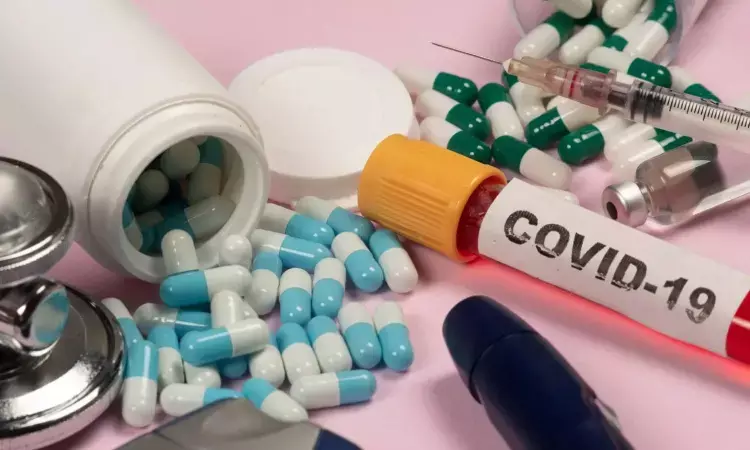- Home
- Medical news & Guidelines
- Anesthesiology
- Cardiology and CTVS
- Critical Care
- Dentistry
- Dermatology
- Diabetes and Endocrinology
- ENT
- Gastroenterology
- Medicine
- Nephrology
- Neurology
- Obstretics-Gynaecology
- Oncology
- Ophthalmology
- Orthopaedics
- Pediatrics-Neonatology
- Psychiatry
- Pulmonology
- Radiology
- Surgery
- Urology
- Laboratory Medicine
- Diet
- Nursing
- Paramedical
- Physiotherapy
- Health news
- Fact Check
- Bone Health Fact Check
- Brain Health Fact Check
- Cancer Related Fact Check
- Child Care Fact Check
- Dental and oral health fact check
- Diabetes and metabolic health fact check
- Diet and Nutrition Fact Check
- Eye and ENT Care Fact Check
- Fitness fact check
- Gut health fact check
- Heart health fact check
- Kidney health fact check
- Medical education fact check
- Men's health fact check
- Respiratory fact check
- Skin and hair care fact check
- Vaccine and Immunization fact check
- Women's health fact check
- AYUSH
- State News
- Andaman and Nicobar Islands
- Andhra Pradesh
- Arunachal Pradesh
- Assam
- Bihar
- Chandigarh
- Chattisgarh
- Dadra and Nagar Haveli
- Daman and Diu
- Delhi
- Goa
- Gujarat
- Haryana
- Himachal Pradesh
- Jammu & Kashmir
- Jharkhand
- Karnataka
- Kerala
- Ladakh
- Lakshadweep
- Madhya Pradesh
- Maharashtra
- Manipur
- Meghalaya
- Mizoram
- Nagaland
- Odisha
- Puducherry
- Punjab
- Rajasthan
- Sikkim
- Tamil Nadu
- Telangana
- Tripura
- Uttar Pradesh
- Uttrakhand
- West Bengal
- Medical Education
- Industry
Vitamin D supplementation fails to reduce risk of COVID-19, find two trials

For a long time, Vitamin D metabolites have been recognised to boost innate immune responses to respiratory viruses and bacteria. Further some studies in the past have shown that Vitamin D may provide protection against respiratory tract infections, particularly among those who are vitamin D deficient.
Vitamin D supplementation fails to reduce risk of covid-19 or other acute respiratory infections according to two separate clinical trials. Boosting of vitamin D levels in adults was not associated with protection against respiratory tract infections or covid-19.
The trial were published by The BMJ today.
Vitamin D has therefore received much attention for its potential role in preventing and treating covid-19, but most studies published so far are observational and have shown mixed results.
The first trial was carried out in the UK between December 2020 and June 2021 and involved 6,200 adults (16 years and over) not using vitamin D supplements at enrolment.
Half (3,100 participants) were offered a vitamin D blood test and those found to have low vitamin D levels (2,674; 86%) received either 3200 IU/day or 800 IU/day of vitamin D supplements for six months, while the other half (controls) received no test or supplements.
Neither of the vitamin D doses showed any effect on diagnosed acute respiratory tract infections or lateral flow test or RT-PCR confirmed covid-19 cases over a six month follow-up period. The number of adverse events was similar between groups, and no serious adverse event was attributed to study supplements.
The second trial was conducted in Norway between November 2020 and June 2021, using cod liver oil which contains low doses of vitamin D and vitamin A as well as omega-3 fatty acids.
A total of 34,741 adults (18-75 years) who were not using vitamin D supplements received either 5 mL cod liver oil or 5 mL placebo (corn oil) daily for six months. The majority of participants (86%) who were tested had adequate vitamin D levels at the start of the study.
Again, the researchers found no effect of cod liver oil on acute respiratory infections or PCR confirmed covid-19, compared with placebo. The cod liver oil group had no more side effects than the placebo group and only low-grade side effects were reported.
Both trials have notable limitations. For example, in the UK trial, participants randomised to the active arms knew they were taking an active drug and almost half of controls took a vitamin D supplement on at least one occasion during the trial. In the Norway trial, participants were relatively young and healthy, and most (when tested) had adequate vitamin D levels at the start of the study.
The findings should also be interpreted in the context of a highly effective vaccine rolled out during both trials. Nevertheless, both trials had several strengths, including use of RT-PCR swab tests to confirm infections and high levels of compliance among participants. The results are also in line with previous research that found no preventive effect of vitamin D on risk of covid-19.
Together, these new results suggest that vitamin D supplements do not reduce risk of covid-19 or other acute respiratory infections.
In a linked editorial, Professor Peter Bergman at the Karolinska Institutet in Sweden says vaccination is still the most effective way to protect people from covid-19, and vitamin D and cod liver oil supplementation should not be offered to healthy people with normal vitamin D levels.
Instead, he suggests clinicians could focus on risk groups, including people with dark skin, or skin that is rarely exposed to the sun, pregnant women, and elderly people with chronic diseases, who could be tested before supplementation.
Reference:
Prevention of covid-19 and other acute respiratory infections with cod liver oil supplementation, a low dose vitamin D supplement: quadruple blinded, randomised placebo controlled trial doi: 10.1136/ bmj-2022-071245 Journal: The BMJ
Dr Kamal Kant Kohli-MBBS, DTCD- a chest specialist with more than 30 years of practice and a flair for writing clinical articles, Dr Kamal Kant Kohli joined Medical Dialogues as a Chief Editor of Medical News. Besides writing articles, as an editor, he proofreads and verifies all the medical content published on Medical Dialogues including those coming from journals, studies,medical conferences,guidelines etc. Email: drkohli@medicaldialogues.in. Contact no. 011-43720751


